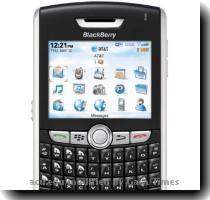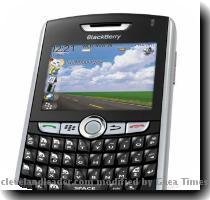BlackBerry e-mail service restored, but its users fret after 2nd outage in a week
By Rob Gillies, APWednesday, December 23, 2009
BlackBerry users beset by second outage in a week
TORONTO — When Corey Marshall’s Blackberry mysteriously stopped sending and receiving messages, he realized all too clearly just how much he depends on the device: He had no way of contacting his friends because he never bothers to exchange phone numbers with anyone anymore.
“A lot of the times if I meet someone and I see they have a BlackBerry, I don’t even want their number or care. I just want their BBM,” or their BlackBerry instant-messaging ID, said the 23-year-old tanning-salon manager and student. “I didn’t even have my boss’ number. I only contact him through BB.”
He added: “I go to sleep with it in my hands. It’s the first thing I do when I wake up in the middle of the night. It’s the first thing I do when I wake up in the morning.”
The second BlackBerry outage in less than a week disrupted service for millions of users on two continents Tuesday and Wednesday, demonstrating how vital — and how addictive — the device dubbed the “CrackBerry” can be.
The company behind the service, Canada’s Research in Motion Ltd., blamed a software upgrade for the problem, which it said was confined to North and South America.
RIM said BlackBerry users were unable to send or receive e-mails and instant messages but did not lose phone service. Many users also found the Internet inaccessible. RIM said the disruptions began around 1:45 p.m. Eastern time on Tuesday, worsened around 6:30 p.m. and began to be fixed around 11:30 p.m. Service appeared restored by Wednesday afternoon. RIM would not disclose exactly how many subscribers were affected.
The glitch comes after another outage last Thursday and at least three breakdowns in 2008. The latest problems are happening at an especially bad time for RIM, which is facing tougher competition than ever before in the market it helped pioneer.
“One of RIM’s big advantages is that it’s perceived as a reliable device,” said Duncan Stewart, director of research and analysis at DSam Consulting. “To lose the advantage of reliability would, in fact, be a very big deal for this company.”
CanDace Johnson, a 25-year-old nanny living in New York, said her BlackBerry lost all Internet service around 6 p.m. on Tuesday, leaving her cut off from the e-mail account she uses to keep in touch with her boss.
“If someone is watching your child, you want them to respond to your messages,” she said.
Robert Hagler, a 46-year-old lawyer in Daphne, Ala., noticed around dinner time Tuesday that the normal flow of e-mail and Facebook updates on his BlackBerry Curve had petered out.
“So I went home that evening, logged on to my laptop, and there’s 20 e-mails sitting there,” he said. “All my iPhone friends are just tickled to death.”
When Marshall suddenly stopped getting reply messages from his friends, he lost his cool: “I kept unplugging my phone, turning it off and on. I was getting very upset when it wouldn’t work.”
“My whole life is based on my BBM,” he said.
RIM has sold more than 75 million BlackBerrys since the gadget debuted 10 years ago. It now counts 36 million subscribers around the globe and ranks second in the worldwide market for advanced “smart phones,” with a 21 percent share, behind Nokia Corp.’s 39 percent, according to market research firm Gartner Inc.
BlackBerrys are especially popular in occupations heavily dependent on messaging — among lawyers and business executives, for instance. RIM counts 500,000 subscribers in the U.S. government. President Barack Obama has been a BlackBerry devotee.
After originally focusing on corporate or government customers, RIM now gets most of its new subscribers in the consumer market, thanks to touch-screen models like the BlackBerry Storm.
But RIM faces innovative competitors such as Apple’s iPhone, which had 17 percent of the smart phone market in the Gartner report, and the brand-new Motorola Droid. RIM’s stock has dropped 23 percent since September.
The iPhone is beloved for its design cachet and the seemingly limitless supply of programs, known as “apps,” that users can download to customize their phones. BlackBerrys got apps later, and have fewer available.
Yet the iPhone also has not been as reliable as many users would like. AT&T, the sole carrier of the device in the U.S., has been upgrading its network to reduce the dropped connections and long waits people have encountered when trying to run programs.
Although BlackBerry service is sold by wireless carriers, RIM manages its messaging network itself. The centralized structure means that any problems can affect millions of users.
This week’s outage apparently stemmed from a flaw in recently released versions of RIM’s instant messaging software, known as BlackBerry Messenger. RIM released a new version on Wednesday that solves the problem.
RIM, which is based in Waterloo, Ontario, apologized for any inconvenience. The company declined interview requests.
AP Business Writer Andrew Vanacore in New York contributed to this report.
Tags: Canada, Communication Technology, Consumer Electronics, Mobile Communications, New York, North America, Ontario, Toronto, United States

